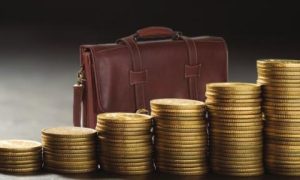A Nigerian senator, Ned Nwoko, has advised the Federal Government and the Central Bank of Nigeria (CBN) against any measures that capable if artificially forcing the Naira to gain value against other currencies.
Nwoko, who represents Delta North, advised in a statement he signed and made available to the News Agency of Nigeria, in Abuja on Saturday.
He advised them to concentrate on tackling the main issues responsible for the Naira depreciation, saying there was no short-cut to success.
He said the quest for economic freedom and the strength of the nation’s currency was an ongoing journey.
Nwoko also said the continuous revisit to previously implemented policies and considerations of new ones were imperative.
He also said the value of a sovereign nation’s currency was the cornerstone of respect and collaboration among nations, while reiterating that Nigeria must stimulate Naira demand.
According to him, as a nation that exports crude oil and other commodities globally, it is imperative that all transaction on these items be conducted exclusively in Naira.
“This will incentivise buyers to seek out Naira, thereby driving its appreciation due to increased demand and scarcity.
“Moreover, the foreign reserve policy warrants reassessment. The practice of maintaining reserves in foreign jurisdictions, termed “foreign reserves,” is not only objectionable but also counterproductive to Nigeria’s economic sovereignty.
“Unlike other nations like the United States, Britain, France, and Japan, which hold their reserves domestically, Nigeria’s adherence to this practice raises questions about its colonial legacy.
“If our early indigenous leaders acquiesced to this approach due to colonial influence, why should we perpetuate it? The primary rationale often cited to justify foreign reserves is trade balance maintenance“, Nwoko said.
According to him, this argument lacks merit when considering the limited number of traders involved in importing goods into Nigeria, which constitutes a negligible fraction of the nation’s population.
“Therefore, the notion that foreign reserves are indispensable for trade balance equilibrium falls short upon scrutiny”, he said.



























